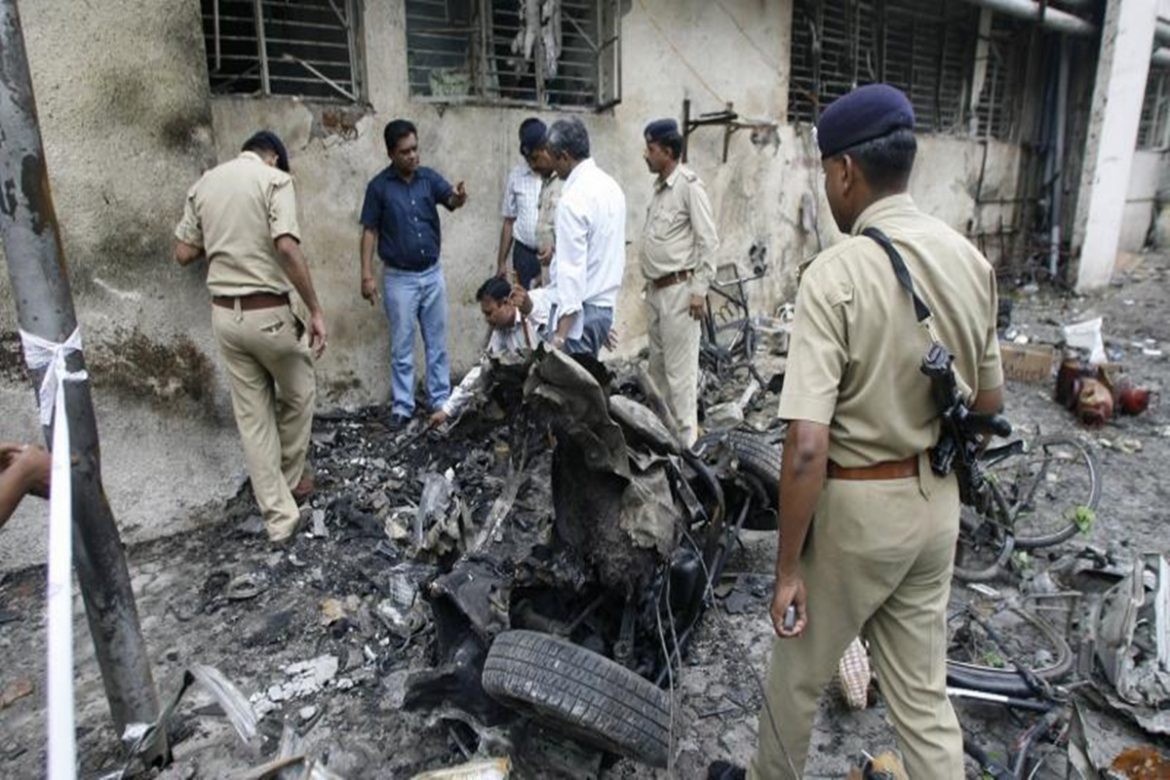After waiting for more than 13 years the special court appointed for the speedy trial of 2008 Ahmedabad serial bomb blast has sentenced 38 of the 49 convicts death sentence while remaining 11 convicts are given life imprisonment.
In a speedy trial of the court announced the punishment under provisions of the Unlawful Activities (Prevention) Act (UAPA) and Section 302 of the Indian Penal Code.
Pronouncing the judgment, Special Judge AR Patel awarded a compensation of Rs 1 lakh to those who had died in the blasts. He also awarded a compensation of Rs 50,000 for victims with serious injuries and Rs 25,000 for those with minor ones.
Usman Agarbattiwala, the only one convicted under the Arms Act and among those sentenced to death, has been additionally awarded a year of imprisonment for conviction under the Arms Act.
The special court had on February 8 held 49 people guilty of carrying out a terror strike in Ahmedabad.
On July 26, 2008, 21 bombs rocked the city within the span of 70 minutes killing 56 people and injured more than 200 others.
In this terrorist attack, hospitals were targeted for the first time in the country. Ahmedabad Municipal Corporation-run LG Hospital, on buses, parked bicycles, in cars and other places.
In a blast that took place at the Civil Hospital, 37 people lost their lives. One blast also took place at LG Hospital, but none was injured there.
The Indian Mujahideen (IM) had claimed the responsibility of the terror strike and termed the act as reprisal of the 2002 riots.
The trial was conducted by the court after merging 35 different cases registered against the accused in Ahmedabad and Surat. There were 20 FIRs lodged in Ahmedabad for the bomb blasts and 15 registered in Surat as 29 unexploded bombs were recovered from various parts of the city a couple of days after the terror strike in Ahmedabad.
On February 8, the Special Judge had declared 49 of the total 78 accused as guilty under various offences of the Indian Penal Code, including for murder, sedition and waging war against the state, as well as under offences of the UAPA, Explosive Substances Act.



